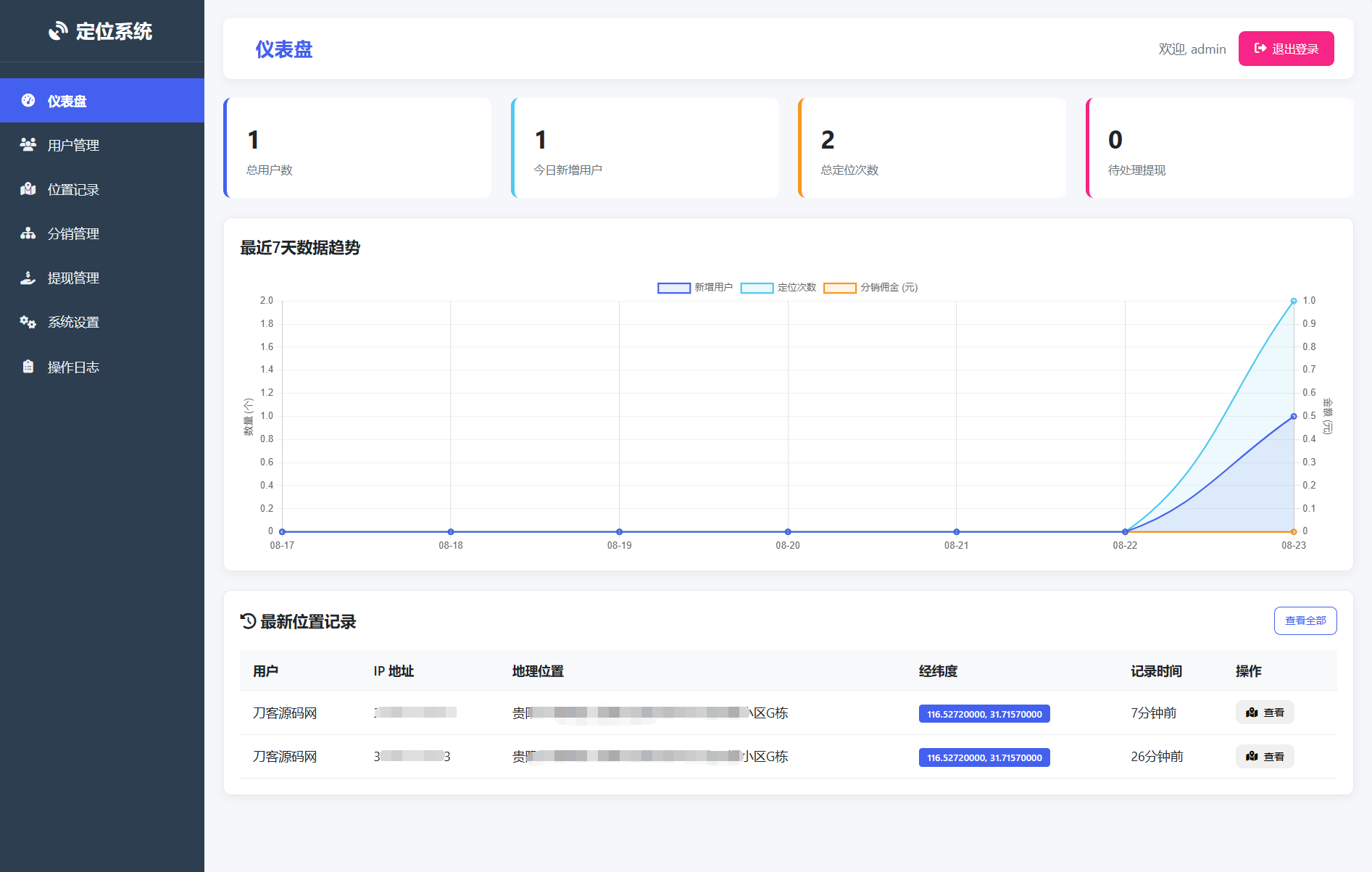AutoMapper是让人又爱又恨的项目
- 爱它是因为它解决了一些问题,很多项目都有用,下载量很大,受众很广。
- 恨它是因为它诸多反人类的设计。
- 为此本人开源项目PocoEmit对标AutoMapper。
1. AutoMapper反人类设计
1.1 AutoMapper注册代码
services.AddAutoMapper(cfg => cfg.CreateMap<User, UserDTO>()); User和UserDTO除了类名不一样,其他都一样,怎么看这行代码都多余。
需要转化的类型越多,多余的代码就越多。
类型转化不应该就是个静态方法吗?而且AutoMapper注册却依赖容器,Mapper对象也是从容器获取。
本人觉得AutoMapper设计的太反人类了。
1.2 PocoEmit对于大部分转化是不需要手动配置
- PocoEmit可以轻松的定义静态实例。
- PocoEmit静态实例可以用来定义静态委托字段,当静态方法用。
UserDTO dto = PocoEmit.Mapper.Default.Convert<User, UserDTO>(new User()); public static readonly Func<User, UserDTO> UserDTOConvert = PocoEmit.Mapper.Default.GetConvertFunc<User, UserDTO>(); 2. AutoMapper的性能差强人意
2.1 以下是AutoMapper官网例子与PocoEmit.Mapper的对比
- Customer转化为CustomerDTO(嵌套多个子对象、数组及列表)。
- Auto是执行AutoMapper的IMapper.Map方法。
- Poco是执行PocoEmit.Mapper的IMapper.Convert方法。
- PocoFunc是执行PocoEmit.Mapper生成的委托。
| Method | Mean | Error | StdDev | Median | Ratio | RatioSD | Gen0 | Allocated | Alloc Ratio |
|---|---|---|---|---|---|---|---|---|---|
| Auto | 89.30 ns | 1.006 ns | 1.118 ns | 90.17 ns | 1.46 | 0.03 | 0.0260 | 448 B | 1.08 |
| Poco | 61.31 ns | 1.036 ns | 1.194 ns | 61.25 ns | 1.00 | 0.03 | 0.0241 | 416 B | 1.00 |
| PocoFunc | 42.56 ns | 0.066 ns | 0.073 ns | 42.56 ns | 0.69 | 0.01 | 0.0223 | 384 B | 0.92 |
- Auto耗时比Poco多50%左右。
- Auto耗时是PocoFunc的两倍多。
2.2 能不能用AutoMapper生成委托来提高性能呢
- 既可以说能也可以说不能。
- 说能是因为AutoMapper确实提供了该功能。
- 说不能是因为AutoMapper没打算给用户用。
2.2.1 AutoMapper生成委托有点麻烦
var configuration = _auto.ConfigurationProvider.Internal(); var mapRequest = new MapRequest(new TypePair(typeof(Customer), typeof(CustomerDTO))); Func<Customer, CustomerDTO, ResolutionContext, CustomerDTO> autoFunc = configuration.GetExecutionPlan<Customer, CustomerDTO>(mapRequest); 作为对比PocoEmit.Mapper就简单的多了
Func<Customer, CustomerDTO> pocoFunc = PocoEmit.Mapper.Default.GetConvertFunc<Customer, CustomerDTO>(); 2.2.2 调用AutoMapper生成的委托更麻烦
- 参数ResolutionContext没有公开的构造函数,也找不到公开的实例。
- 只能通过反射获得ResolutionContext的实例。
var field = typeof(AutoMapper.Mapper).GetField("_defaultContext", System.Reflection.BindingFlags.Instance | System.Reflection.BindingFlags.NonPublic); ResolutionContext resolutionContext = field.GetValue(_auto) as ResolutionContext; 2.2.3 加入AutoMapper生成委托再对比一下
| Method | Mean | Error | StdDev | Median | Ratio | RatioSD | Gen0 | Allocated | Alloc Ratio |
|---|---|---|---|---|---|---|---|---|---|
| Auto | 89.30 ns | 1.006 ns | 1.118 ns | 90.17 ns | 1.46 | 0.03 | 0.0260 | 448 B | 1.08 |
| AutoFunc | 56.04 ns | 0.103 ns | 0.119 ns | 56.03 ns | 0.91 | 0.02 | 0.0260 | 448 B | 1.08 |
| Poco | 61.31 ns | 1.036 ns | 1.194 ns | 61.25 ns | 1.00 | 0.03 | 0.0241 | 416 B | 1.00 |
| PocoFunc | 42.56 ns | 0.066 ns | 0.073 ns | 42.56 ns | 0.69 | 0.01 | 0.0223 | 384 B | 0.92 |
- AutoMapper生成委托确实也快了不少。
- 从百分比来看即使不生成委托,AutoMapper也慢不了多少?没有数量级的区别,能忍? --- 反问句
2.3 简单类型转化对比
- User转UserDTO,只有两个简单属性
| Method | Mean | Error | StdDev | Ratio | Gen0 | Allocated | Alloc Ratio |
|---|---|---|---|---|---|---|---|
| Auto | 35.436 ns | 0.0455 ns | 0.0505 ns | 1.57 | 0.0019 | 32 B | 0.50 |
| AutoFunc | 4.159 ns | 0.0847 ns | 0.0906 ns | 0.18 | 0.0019 | 32 B | 0.50 |
| Poco | 22.607 ns | 0.1754 ns | 0.1801 ns | 1.00 | 0.0037 | 64 B | 1.00 |
| PocoFunc | 3.818 ns | 0.0176 ns | 0.0180 ns | 0.17 | 0.0019 | 32 B | 0.50 |
- Auto耗时是AutoFunc差不多十倍,差出一个数量级了(回答了前面的反问)
- AutoFunc耗时比PocoFunc稍多,这说明AutoMapper复杂类型转化性能非常不好,简单类型转化可能还能凑合
- 关键是性能好生成的委托AutoMapper不给用啊,“婶可忍叔不可忍”啊!
3. AutoMapper生成的代码能通过代码审核吗?
3.1 AutoMapper官网那个例子生成以下代码
T __f<T>(System.Func<T> f) => f(); CustomerDTO _autoMap(Customer source, CustomerDTO destination, ResolutionContext context) { return (source == null) ? (destination == null) ? (CustomerDTO)null : destination : __f(() => { CustomerDTO typeMapDestination = null; typeMapDestination = destination ?? new CustomerDTO(); try { typeMapDestination.Id = source.Id; } catch (Exception ex) { throw TypeMapPlanBuilder.MemberMappingError( ex, default(PropertyMap)/*NOTE: Provide the non-default value for the Constant!*/); } try { typeMapDestination.Name = source.Name; } catch (Exception ex) { throw TypeMapPlanBuilder.MemberMappingError( ex, default(PropertyMap)/*NOTE: Provide the non-default value for the Constant!*/); } try { Address resolvedValue = null; Address mappedValue = null; resolvedValue = source.Address; mappedValue = (resolvedValue == null) ? (Address)null : ((Func<Address, Address, ResolutionContext, Address>)(( Address source_1, Address destination_1, ResolutionContext context) => //Address (source_1 == null) ? (destination_1 == null) ? (Address)null : destination_1 : __f(() => { Address typeMapDestination_1 = null; typeMapDestination_1 = destination_1 ?? new Address(); try { typeMapDestination_1.Id = source_1.Id; } catch (Exception ex) { throw TypeMapPlanBuilder.MemberMappingError( ex, default(PropertyMap)/*NOTE: Provide the non-default value for the Constant!*/); } try { typeMapDestination_1.Street = source_1.Street; } catch (Exception ex) { throw TypeMapPlanBuilder.MemberMappingError( ex, default(PropertyMap)/*NOTE: Provide the non-default value for the Constant!*/); } try { typeMapDestination_1.City = source_1.City; } catch (Exception ex) { throw TypeMapPlanBuilder.MemberMappingError( ex, default(PropertyMap)/*NOTE: Provide the non-default value for the Constant!*/); } try { typeMapDestination_1.Country = source_1.Country; } catch (Exception ex) { throw TypeMapPlanBuilder.MemberMappingError( ex, default(PropertyMap)/*NOTE: Provide the non-default value for the Constant!*/); } return typeMapDestination_1; }))) .Invoke( resolvedValue, (destination == null) ? (Address)null : typeMapDestination.Address, context); typeMapDestination.Address = mappedValue; } catch (Exception ex) { throw TypeMapPlanBuilder.MemberMappingError( ex, default(PropertyMap)/*NOTE: Provide the non-default value for the Constant!*/); } try { Address resolvedValue_1 = null; AddressDTO mappedValue_1 = null; resolvedValue_1 = source.HomeAddress; mappedValue_1 = (resolvedValue_1 == null) ? (AddressDTO)null : ((Func<Address, AddressDTO, ResolutionContext, AddressDTO>)(( Address source_2, AddressDTO destination_2, ResolutionContext context) => //AddressDTO (source_2 == null) ? (destination_2 == null) ? (AddressDTO)null : destination_2 : __f(() => { AddressDTO typeMapDestination_2 = null; typeMapDestination_2 = destination_2 ?? new AddressDTO(); try { typeMapDestination_2.Id = source_2.Id; } catch (Exception ex) { throw TypeMapPlanBuilder.MemberMappingError( ex, default(PropertyMap)/*NOTE: Provide the non-default value for the Constant!*/); } try { typeMapDestination_2.City = source_2.City; } catch (Exception ex) { throw TypeMapPlanBuilder.MemberMappingError( ex, default(PropertyMap)/*NOTE: Provide the non-default value for the Constant!*/); } try { typeMapDestination_2.Country = source_2.Country; } catch (Exception ex) { throw TypeMapPlanBuilder.MemberMappingError( ex, default(PropertyMap)/*NOTE: Provide the non-default value for the Constant!*/); } return typeMapDestination_2; }))) .Invoke( resolvedValue_1, (destination == null) ? (AddressDTO)null : typeMapDestination.HomeAddress, context); typeMapDestination.HomeAddress = mappedValue_1; } catch (Exception ex) { throw TypeMapPlanBuilder.MemberMappingError( ex, default(PropertyMap)/*NOTE: Provide the non-default value for the Constant!*/); } try { Address[] resolvedValue_2 = null; AddressDTO[] mappedValue_2 = null; resolvedValue_2 = source.Addresses; mappedValue_2 = (resolvedValue_2 == null) ? Array.Empty<AddressDTO>() : __f(() => { AddressDTO[] destinationArray = null; int destinationArrayIndex = default; destinationArray = new AddressDTO[resolvedValue_2.Length]; destinationArrayIndex = default(int); int sourceArrayIndex = default; Address sourceItem = null; sourceArrayIndex = default(int); while (true) { if ((sourceArrayIndex < resolvedValue_2.Length)) { sourceItem = resolvedValue_2[sourceArrayIndex]; destinationArray[destinationArrayIndex++] = ((Func<Address, AddressDTO, ResolutionContext, AddressDTO>)(( Address source_2, AddressDTO destination_2, ResolutionContext context) => //AddressDTO (source_2 == null) ? (destination_2 == null) ? (AddressDTO)null : destination_2 : __f(() => { AddressDTO typeMapDestination_2 = null; typeMapDestination_2 = destination_2 ?? new AddressDTO(); try { typeMapDestination_2.Id = source_2.Id; } catch (Exception ex) { throw TypeMapPlanBuilder.MemberMappingError( ex, default(PropertyMap)/*NOTE: Provide the non-default value for the Constant!*/); } try { typeMapDestination_2.City = source_2.City; } catch (Exception ex) { throw TypeMapPlanBuilder.MemberMappingError( ex, default(PropertyMap)/*NOTE: Provide the non-default value for the Constant!*/); } try { typeMapDestination_2.Country = source_2.Country; } catch (Exception ex) { throw TypeMapPlanBuilder.MemberMappingError( ex, default(PropertyMap)/*NOTE: Provide the non-default value for the Constant!*/); } return typeMapDestination_2; }))) .Invoke( sourceItem, (AddressDTO)null, context); sourceArrayIndex++; } else { goto LoopBreak; } } LoopBreak:; return destinationArray; }); typeMapDestination.Addresses = mappedValue_2; } catch (Exception ex) { throw TypeMapPlanBuilder.MemberMappingError( ex, default(PropertyMap)/*NOTE: Provide the non-default value for the Constant!*/); } try { List<Address> resolvedValue_3 = null; List<AddressDTO> mappedValue_3 = null; resolvedValue_3 = source.WorkAddresses; mappedValue_3 = (resolvedValue_3 == null) ? new List<AddressDTO>() : __f(() => { List<AddressDTO> collectionDestination = null; List<AddressDTO> passedDestination = null; passedDestination = (destination == null) ? (List<AddressDTO>)null : typeMapDestination.WorkAddresses; collectionDestination = passedDestination ?? new List<AddressDTO>(); collectionDestination.Clear(); List<Address>.Enumerator enumerator = default; Address item = null; enumerator = resolvedValue_3.GetEnumerator(); try { while (true) { if (enumerator.MoveNext()) { item = enumerator.Current; collectionDestination.Add(((Func<Address, AddressDTO, ResolutionContext, AddressDTO>)(( Address source_2, AddressDTO destination_2, ResolutionContext context) => //AddressDTO (source_2 == null) ? (destination_2 == null) ? (AddressDTO)null : destination_2 : __f(() => { AddressDTO typeMapDestination_2 = null; typeMapDestination_2 = destination_2 ?? new AddressDTO(); try { typeMapDestination_2.Id = source_2.Id; } catch (Exception ex) { throw TypeMapPlanBuilder.MemberMappingError( ex, default(PropertyMap)/*NOTE: Provide the non-default value for the Constant!*/); } try { typeMapDestination_2.City = source_2.City; } catch (Exception ex) { throw TypeMapPlanBuilder.MemberMappingError( ex, default(PropertyMap)/*NOTE: Provide the non-default value for the Constant!*/); } try { typeMapDestination_2.Country = source_2.Country; } catch (Exception ex) { throw TypeMapPlanBuilder.MemberMappingError( ex, default(PropertyMap)/*NOTE: Provide the non-default value for the Constant!*/); } return typeMapDestination_2; }))) .Invoke( item, (AddressDTO)null, context)); } else { goto LoopBreak_1; } } LoopBreak_1:; } finally { enumerator.Dispose(); } return collectionDestination; }); typeMapDestination.WorkAddresses = mappedValue_3; } catch (Exception ex) { throw TypeMapPlanBuilder.MemberMappingError( ex, default(PropertyMap)/*NOTE: Provide the non-default value for the Constant!*/); } return typeMapDestination; }); } 3.2 以下是PocoEmit.Mapper生成的代码
T __f<T>(System.Func<T> f) => f(); CustomerDTO _pocoConvert(Customer source) { CustomerDTO dest = null; return (source == (Customer)null) ? (CustomerDTO)null : __f(() => { dest = new CustomerDTO(); int member0 = default; string member1 = null; Address member2 = null; Address member3 = null; Address[] member4 = null; List<Address> member5 = null; member0 = source.Id; dest.Id = member0; member1 = source.Name; dest.Name = member1; member2 = source.Address; if ((member2 != null)) { dest.Address = member2; } member3 = source.HomeAddress; if ((member3 != null)) { // { The block result will be assigned to `dest.HomeAddress` AddressDTO dest_1 = null; dest.HomeAddress = (member3 == (Address)null) ? (AddressDTO)null : __f(() => { dest_1 = new AddressDTO(); int member0_1 = default; string member1_1 = null; string member2_1 = null; member0_1 = member3.Id; dest_1.Id = member0_1; member1_1 = member3.City; dest_1.City = member1_1; member2_1 = member3.Country; dest_1.Country = member2_1; return dest_1; }); // } end of block assignment; } member4 = source.Addresses; if ((member4 != null)) { // { The block result will be assigned to `dest.Addresses` int count = default; AddressDTO[] dest_2 = null; int index = default; Address sourceItem = null; count = member4.Length; dest_2 = new AddressDTO[count]; index = 0; while (true) { if ((index < count)) { sourceItem = member4[index]; // { The block result will be assigned to `dest_2[index]` AddressDTO dest_3 = null; dest_2[index] = (sourceItem == (Address)null) ? (AddressDTO)null : __f(() => { dest_3 = new AddressDTO(); int member0_2 = default; string member1_2 = null; string member2_2 = null; member0_2 = sourceItem.Id; dest_3.Id = member0_2; member1_2 = sourceItem.City; dest_3.City = member1_2; member2_2 = sourceItem.Country; dest_3.Country = member2_2; return dest_3; }); // } end of block assignment index++; } else { goto forLabel; } } forLabel:; dest.Addresses = dest_2; // } end of block assignment; } member5 = source.WorkAddresses; if ((member5 != null)) { // { The block result will be assigned to `dest.WorkAddresses` List<AddressDTO> dest_4 = null; dest_4 = new List<AddressDTO>(member5.Count); int index_1 = default; int len = default; index_1 = 0; len = member5.Count; while (true) { if ((index_1 < len)) { Address sourceItem_1 = null; AddressDTO destItem = null; sourceItem_1 = member5[index_1]; // { The block result will be assigned to `destItem` AddressDTO dest_5 = null; destItem = (sourceItem_1 == (Address)null) ? (AddressDTO)null : __f(() => { dest_5 = new AddressDTO(); int member0_3 = default; string member1_3 = null; string member2_3 = null; member0_3 = sourceItem_1.Id; dest_5.Id = member0_3; member1_3 = sourceItem_1.City; dest_5.City = member1_3; member2_3 = sourceItem_1.Country; dest_5.Country = member2_3; return dest_5; }); // } end of block assignment; dest_4.Add(destItem); index_1++; } else { goto forLabel_1; } } forLabel_1:; dest.WorkAddresses = dest_4; // } end of block assignment; } CustomerConvertBench.ConvertAddressCity( source, dest); return dest; }); } 3.3 简单对比如下
- AutoMapper生成代码三百多行,PocoEmit.Mapper一百多行,AutoMapper代码量是两倍以上
- AutoMapper生成大量try catch,哪怕是int对int赋值也要try
- AutoMapper用迭代器Enumerator访问列表,PocoEmit.Mapper用索引器
- AutoMapper这些区别应该是导致性能差的部分原因
3.4 如何获取AutoMapper生成的代码
LambdaExpression expression = _auto.ConfigurationProvider.BuildExecutionPlan(typeof(Customer), typeof(CustomerDTO)); 3.4.1 如果要查看更可读的代码推荐使用FastExpressionCompiler
- 可以使用nuget安装
- 前面的例子就是使用FastExpressionCompiler再手动整理了一下
string code = FastExpressionCompiler.ToCSharpPrinter.ToCSharpString(expression); 3.4.2 PocoEmit获取生成代码更简单
Expression<Func<Customer, CustomerDTO>> expression = PocoEmit.Mapper.Default.BuildConverter<Customer, CustomerDTO>(); string code = FastExpressionCompiler.ToCSharpPrinter.ToCSharpString(expression); 3.4.3 PocoEmit生成代码扩展性
- PocoEmit可以获取委托表达式自己来编译委托
- PocoEmit通过PocoEmit.Builders.Compiler.Instance来编译,可以对Instance进行覆盖来扩展
- 通过实现Compiler类来扩展,只需要重写CompileFunc和CompileAction两个方法
- 可以使用FastExpressionCompiler来实现Compiler类
4. AutoMapper枚举逻辑问题
public enum MyColor { None = 0, Red = 1, Green = 2, Blue = 3, } ConsoleColor color = ConsoleColor.DarkBlue; // Red MyColor autoColor = _auto.Map<ConsoleColor, MyColor>(color); // None MyColor pocoColor = PocoEmit.Mapper.Default.Convert<ConsoleColor, MyColor>(color);
- AutoMapper先按枚举名转化,失败再按值转化,不支持的DarkBlue被AutoMapper转化为Red
- 不同类型的枚举值转化没有意义,定义枚举可以不指定值
- AutoMapper这完全是犯了画蛇添足的错误
- AutoMapper还有哪些槽点欢迎大家在评论区指出
5. PocoEmit可扩展架构
5.1 nuget安装PocoEmit可获得基础功能
- 通过PocoEmit可以读写实体的属性
- PocoEmit可以通过PocoEmit.Poco转化基础类型和枚举
- PocoEmit.Poco支持注册转化表达式
5.2 nuget安装PocoEmit.Mapper获得更多功能
- PocoEmit.Mapper可以支持PocoEmit.Poco的所有功能
- PocoEmit.Mapper可以支持自定义实体类型(不支持集合(含数组、列表及字典)成员)的转化和复制
5.3 nuget安装PocoEmit.Collections扩展集合功能
- 通过UseCollection扩展方法给PocoEmit.Mapper增加集合功能
- 扩展后PocoEmit.Mapper支持集合(含数组、列表及字典)的转化和复制
- 支持实体类型包含集合成员的转化和复制
- 嫌麻烦的同学可以直接安装PocoEmit.Collections并配置UseCollection
源码托管地址: https://github.com/donetsoftwork/MyEmit ,也欢迎大家直接查看源码。
gitee同步更新:https://gitee.com/donetsoftwork/MyEmit
如果大家喜欢请动动您发财的小手手帮忙点一下Star。




















这一切,似未曾拥有